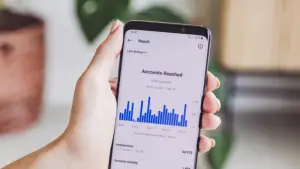If you have already considered switching to a software tool, then you will appreciate that this change does require some lengthy research.
Well, if this is something that you’ve been thinking about, but have yet to take the plunge, then is 2021 the year you can confidently ditch the endless spreadsheets and make the switch!
Here’s why:
You spend too much time communicating
Now, I don’t want to talk about this too much, however, 2020 was a turbulent year with plenty of uncertainty. It is for this reason that you should consider investing in a software tool that will allow all of your team to store and communicate their work effectively in one space. Covid changes meant different geographical areas around the country were placed in different ‘tier’ zones. The consequence of this meant larger Non-profits found themselves with some teams working in offices and others working from home. When this situation arises, clarity of communication can become more difficult, which in turn raises the potential for work and important tasks to be missed or replicated. Having a software tool at the centre of your organisation’s communication and work hub means that your team can maintain and improve their efficiency, regardless of the changing environment.
You spend too much time on administrative tasks and reports
A large part of working for a Non-profit involves collating data, especially at key points throughout the year, e.g. ‘year-end’. At these times, compiling documents (by hard copy or digitally) is often a major and time-consuming task that cannot be avoided. Therefore in a world where there is an abundance of software tools available, why not make use of such aids to your advantage? Some software tools require an initial upfront cost or others a regular subscription. These costs should be easily recoverable from the saving made in administrative man-hours.
You’re tired of using spreadsheets
Spreadsheets have their place in business but they do not always fit the bill for Non-profits. For instance, as a Non-profit grows, they will acquire new contacts. These new contacts will have their own bespoke measures to record different ways to review their own client experiences. Sometimes spreadsheets prove inadequate in tabulating qualitative measures and also tracking the specific quality experience. All of this information is not only difficult to tabulate and track but requires endless email list circulation to be made as updates are released.
In essence, by making the switch to a tool like Katala, you and your team will be able to store all of your contacts and communications in one place. You will also be able to set timely reminders for each contact so you will be prompted when to make contact. This could be for instance: weekly, monthly, or even yearly. Fundamentally, there will be no necessity to send endless ‘update’ emails to your teams and no need for daily ‘catch-up’ calls. Rest assured that all of your data is secure and is able to be accessed by your team from anywhere all in one place constantly being updated and refreshed.


